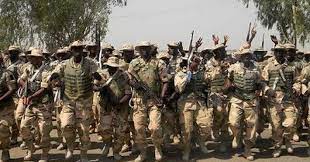
Two leaders of the Okuama community in Ughelli South Area of Delta State, James Oghorokor and Dennis Okugbaye, have filed lawsuits against the Nigerian Army and the State Security Services (SSS), seeking ₦200 million in damages for alleged violations of their fundamental rights. The suits were filed at the Federal High Court in Warri following their arrest and detention last month by military officials.
Oghorokor and Okugbaye, represented by their legal team including Malcolm Omirhobo Esq and Akpokona Omafuaire Esq, are challenging the legality of their arrest and subsequent detention without being charged in court or granted access to legal counsel.
The two leaders, along with four others—Prof Arthur Ekpekpo, Chief Belvis Adogbo, Pa Anthony Ahwemuria, and Mrs Rita Akata—were reportedly arrested by military officials between August 18 and 20, 2024. Their whereabouts have remained unknown since the arrest.
In Suit No. FHC/WR/CS/84/2024, James Oghorokor is demanding ₦100 million in damages for his alleged illegal arrest and detention without trial. Similarly, in Suit No. FHC/WR/CS/85/2024, Dennis Okugbaye is also seeking ₦100 million in damages on the same grounds.
The plaintiffs are asking the court to declare that the invasion of their homes and their subsequent arrest without due process constitutes a violation of their fundamental rights to privacy, liberty, and freedom of movement. They argue that the actions of the Nigerian Army and the SSS are illegal, unlawful, and unconstitutional.
Specifically, the applicants are seeking a court declaration that their continued detention without charges or access to legal counsel or family members violates their rights under the Nigerian Constitution. They are also requesting a perpetual injunction to prevent the respondents, their agents, or any other parties acting on their behalf from further infringing on their fundamental human rights.
In addition to the injunction, Oghorokor and Okugbaye are each seeking ₦100 million in damages for the alleged violations of their rights to personal liberty, privacy, dignity, and freedom of movement.
The case highlights ongoing concerns about the treatment of individuals in custody and the respect for human rights by security agencies in Nigeria. The court’s decision on these suits could have significant implications for the enforcement of fundamental rights in the country.





